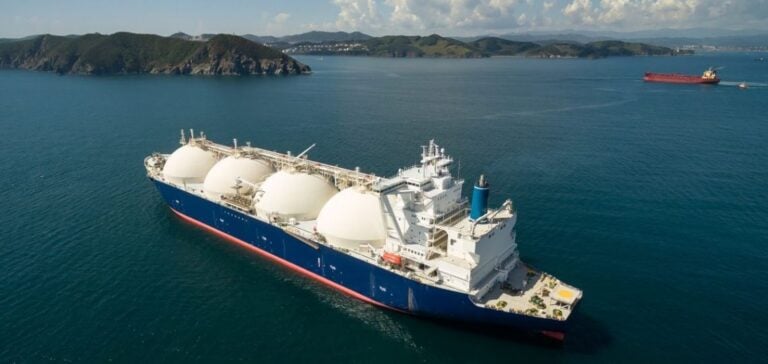In October, Norwegian pipeline gas exports to Northwest Europe significantly increased compared to the previous month, marking a recovery after a sharp decline caused by a heavy maintenance schedule in September. According to data from S&P Global Commodity Insights, Norwegian gas deliveries reached 9.56 billion cubic meters (Bcm) in October, up from 6.4 Bcm in September. This volume also represents a 5% increase compared to the previous year and surpasses the five-year average for October, set at 9.38 Bcm.
This positive trend in exports aligns with Norway’s efforts to strengthen supply to offset the reduction in Russian deliveries since 2022. Norway has become Europe’s main gas supplier, filling a large part of the gap left by Russia. This export increase is also driven by high energy prices in Europe, which have encouraged Norwegian producers to maintain high production levels.
A Pressured Gas Market
Year-to-date exports remain strong, with a total of 93.2 Bcm from January to October, marking a 10% increase compared to the same period in 2022. However, the Norwegian Petroleum Directorate suggests this year could see a stabilization in volumes, with production levels having peaked in 2022.
Torgrim Reitan, CFO of Equinor, Norway’s leading energy company, cautioned that the European gas market remains in a “vulnerable” state. Despite well-filled stocks ahead of winter, external factors such as Asian liquefied natural gas (LNG) demand and the uncertainty surrounding the Russia-Ukraine gas transit agreement, set to expire at the end of the year, could impact market stability.
Potential Winter Impact on Prices
Reitan also emphasized the significance of the upcoming winter weather, noting that the 2023-2024 season could play a crucial role in price dynamics. A harsher winter could reduce gas reserves more quickly than a mild season, putting upward pressure on prices. Estimates suggest that, in a normal winter, gas stocks would be around 40% full in April compared to 60% this year after a mild winter.
This uncertainty about the winter outlook highlights Norway’s strategic importance in securing gas supplies for Europe, especially amid geopolitical tensions and energy market volatility. Norwegian producers are therefore focused on meeting demand while closely monitoring market developments that could redefine prices and supply stability.






















